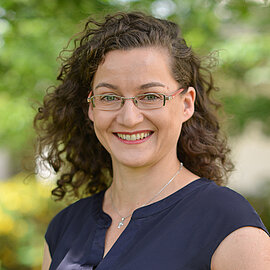Russia’s invasion of Ukraine has sent prices soaring for agricultural commodities such as grains, vegetable oils and fertilizers. This could destabilize food security, particularly in import-dependent countries in the Middle East and North Africa (MENA region). In the latest IAMO Policy Brief 44, Thomas Glauben, Miranda Svanidze, Linde Götz, Sören Prehn, Tinoush Jamali Jaghdani, Ivan Duric and Lena Kuhn assess the current situation on the global wheat market.
The war in Ukraine has aggravated existing tensions on global food markets that can likely be traced back to the COVID-19 pandemic. Since late 2021, prices for agricultural commodities such as grains and vegetable oils have reached record highs, surpassing even the levels of the global food price crises of more than a decade ago. Now, Russia’s invasion of Ukraine has sent prices soaring even higher. This risks destabilizing food security in import-dependent countries with low per capita incomes, especially in the MENA region and sub-Saharan Africa, that source their wheat from Russia and Ukraine. Disruptions to exports from the Black Sea Region and high prices are further compounding the already critical food situation in these regions.
However, global demand for wheat is expected to be met in the current marketing year and countries such as India, the USA and Australia will increase exports to fill the supply gap left by Russia and Ukraine. It is difficult to predict what will happen beyond this marketing year, as this will be determined by the development of the current conflict in addition to agricultural fundamentals in key supply and demand regions. However, preliminary forecasts do not predict dramatic changes in the global trade volumes of key agricultural commodities in the coming marketing year. Nevertheless, international agricultural trade flows may have to adapt, which could have negative consequences. Prices are not expected to fall any time soon and consumers, particularly in developing countries, will be expected to carry the burden. European agriculture and consumers are not predicted to experience any major changes in the medium term.
Open and competitive global trade is needed to overcome (potential) trade disruptions and create supply structures that can easily adapt to shocks, no matter the cause. Calls to move towards a centrally planned economy, isolation or self-sufficiency are strongly advised against, as this would only be to the detriment of food security in the Global South.
“Even if exports from other countries can offset trade disruptions in the Black Sea Region, geopolitical efforts must be made to ensure that Ukraine and Russia remain key parts of the world agricultural trading system. This is the only way to achieve global food security. Their high production and export potential bolsters the ‘safety net of international agricultural trade’ and contributes significantly to combating hunger in the Global South,” says IAMO Director Thomas Glauben.
Further Information
IAMO Policy Brief 44 “The war in Ukraine exposes supply tensions on global agricultural markets: Competitive trade structures are needed to cope with the crisis” was published in German and English. Earlier issues can be downloaded free of charge on the following website: www.iamo.de/en/publications/iamo-policy-briefs.
IAMO Policy Briefs
IAMO conducts research on important agricultural policies. In our IAMO Policy Briefs we share our take on the researched issues. In this series of publications, we elaborate briefly and in comprehensive language on various topics, which are relevant for today's society. We hope to involve the interested public in these topics as well as decision makers in politics, the economy and the media. Since 2011, we publish IAMO Policy Briefs at irregular intervals.



